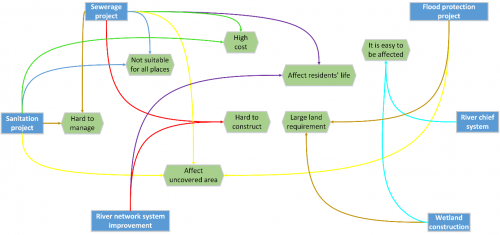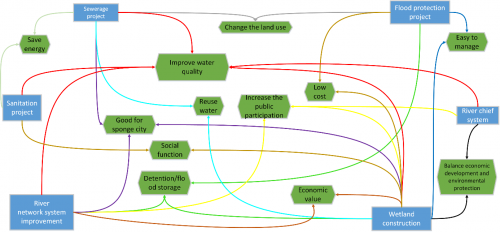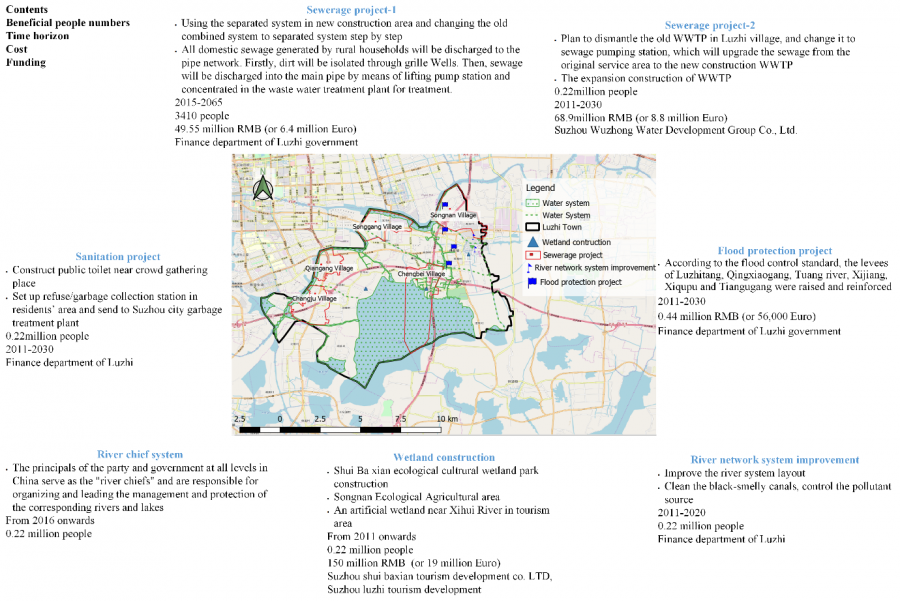Difference between revisions of "Capturing the changing dynamics between governmental actions across plausible future scenarios in urban water systems"
From assela Pathirana
Jump to navigationJump to search
| Line 15: | Line 15: | ||
[[File:SCaS 2020 Bottlenecks map.png|thumb|right|500px| Base scenario - Bottlenecks map]] | [[File:SCaS 2020 Bottlenecks map.png|thumb|right|500px| Base scenario - Bottlenecks map]] | ||
[[File:SCaS 2020 Synergies map.png|thumb|left|500px| Base scenario - Synergies map]] | [[File:SCaS 2020 Synergies map.png|thumb|left|500px| Base scenario - Synergies map]] | ||
[[File:SCaS 2020 map.png|thumb|left| | [[File:SCaS 2020 map.png|thumb|left|900px| Details of governmental actions]] | ||
Revision as of 09:52, 14 July 2020
This paper puts forth a systematic approach to select the governmental actions that can ensure water quality based on the connection between governmental actions at present and in the future using Systems approach (Von Bertalanffy, 1968), SWOT analysis (Houben et al., 1999) and DPSIR framework (OECD, 2003). The proposed methodology under the ambit of systems approach employs: (i) SWOT analysis to identify the connections; and, (ii) DPSIR framework to quantify the connections using impact based indicators for connections between actions. The methodology has been tested using six governmental actions across four plausible future scenarios in Luzhi Town, a unique water village within Suzhou city, China.
Download
- Accepted version (free download) : File:Capturing the changing dynamics between governmental actions across plausible future scenarios in urban water systems.pdf
- At the publisher: LINK


